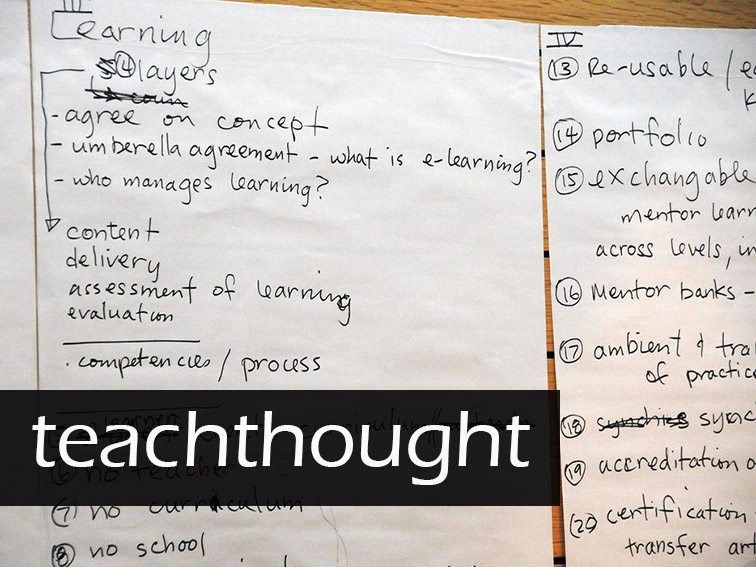 Quantified Learners: Moving Beyond Assessment
Quantified Learners: Moving Beyond Assessment
New applications and technologies are now embedded into practically every aspect of the learning experience. Schools are organizing databases around students that look at multiple performance indicators, and now, more than ever, learning is informed and registered through collections of data points and not just a grade.
As assessment becomes more data-driven, however, it’s important that we remember what the real goal of this data should be. It’s not simply about better assessment; it’s about empowering better learning. Right now, both the technologies and the educators valiantly deploying these new methods are falling short of supporting the quantified learner.
The first step is, of course, designing and building better systems to capture this sort of data, which really isn’t being done at scale. More importantly though, as we build these systems, we need to keep the end-goal in mind — better learning, and constructive and actionable feedback for students. If we focus data-driven efforts solely on assessment, without developing student-empowering technologies that give learners insights into their progress, then we are failing the real goal as well as our students.
As Annie Murphy Paul notes, “the most profound and lasting effect of sharing students’ data with them is to develop their awareness of their own learning.” Paul’s notion of data helping build students’ metacognitive skills is a valuable one, and one that we need to keep incorporating into data-driven approaches to both teaching and learning.
Paul asserts that “having access to information about their performance creates opportunities for students to recognize when they’ve made mistakes and figure out what to do to fix them.” That’s an admirable goal, but it still falls short of what quantified learners could potentially do with that wealth of information. Data shouldn’t just look back; it needs to point forward.
Learning data is valuable in remediating where students have been, but what about using that data to fuel their futures? Looking beyond mere assessment, this data can help students define goals and work towards them, operating as a recommendation driver to identify new areas where they might excel, mapping what they know and what they need to know, and even providing validation along the way in the form of micro-credentials or other forms of recognition and verification.
Our quantified efforts should strive to achieve this level of empowerment for students right now. More importantly, and more concerningly, most edtech companies are not considering these capabilities in the data-collection systems they are developing and using.
We’re seeing important shifts in the interplay of technology and education, but they are well off from what’s required to enable and empower quantified learning. In fact, they don’t seem too concerned with providing insights to learners at this point, which is a shame.
MOOCs, for example, have provided some of the most exciting and worthwhile developments within education technology in the past couple decades. Yet, in order to improve something, you need to be able to measure it — to quantify it. When the only data coming from engagement with a MOOC is how much video someone has watched, we are a far cry from truly adding value to the learning side of the equation.
As we build out these systems and more data enters the classroom (physical and/or virtual), we need to focus on the real goals and opportunities for empowering learners. If we relegate the role and insights of data to mere assessment, we are doing a disservice to our students and the capabilities of the technologies we’re employing. As the Quantified Self movement has suggested, data aggregation and data accessibly can be a non-trivial motivator. And improved student outcomes are still every educators’ goal.
Developing more robust data systems that scale is the first step, but they also need to provide feedback and help predict and guide students’ learning. If we can achieve that vision, then assessment will be as empowering to learners as it is to educators.
Andrew Smith Lewis is co-founder and executive chairman of Cerego, a leading provider of adaptive learning solutions for publishers, educators, and students. Follow him @aslives; Empowering The Quantified Learner: Why EdTech Needs To Move Beyond Assessment; image attribution flickr user larryjohnson

